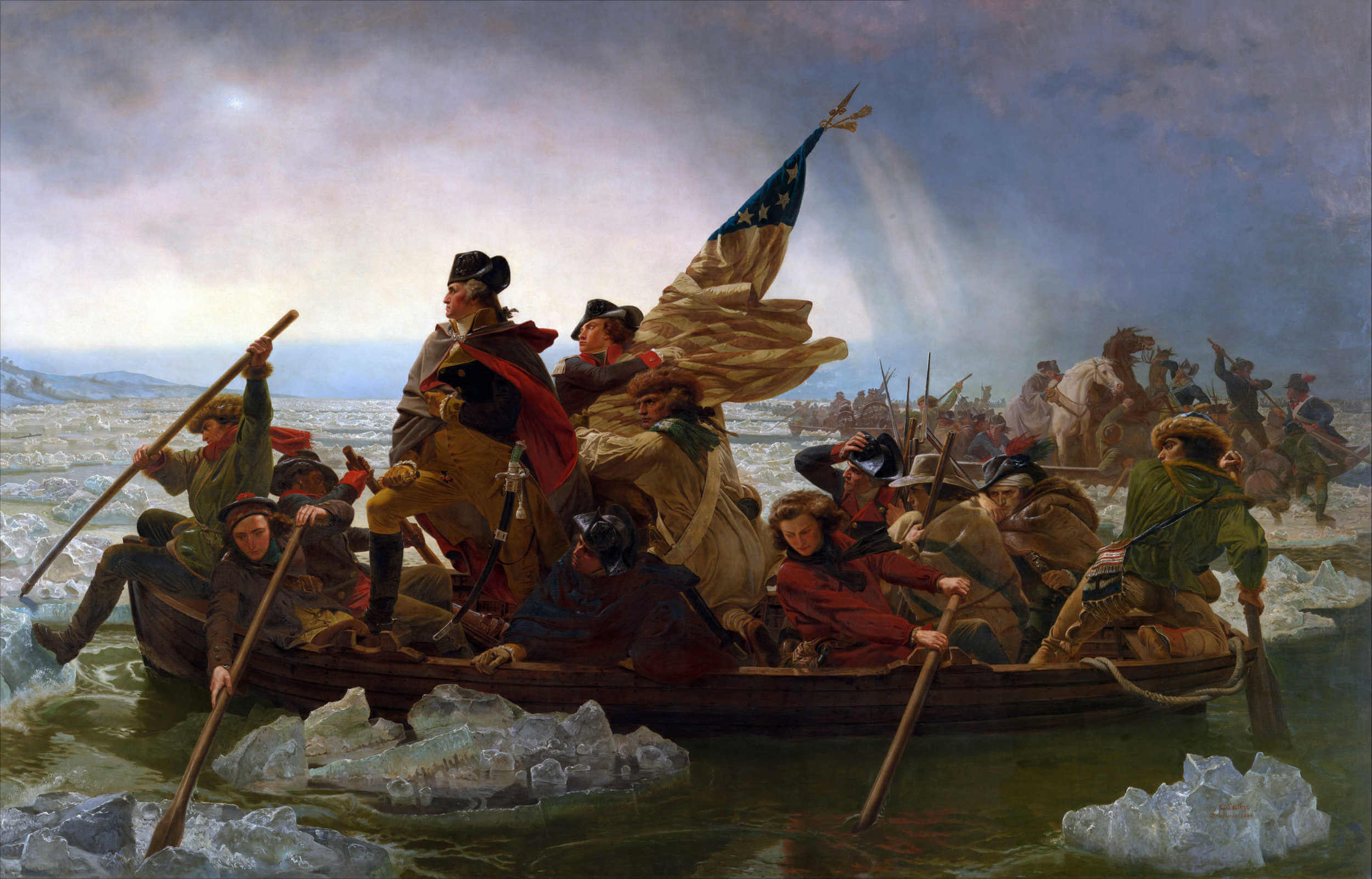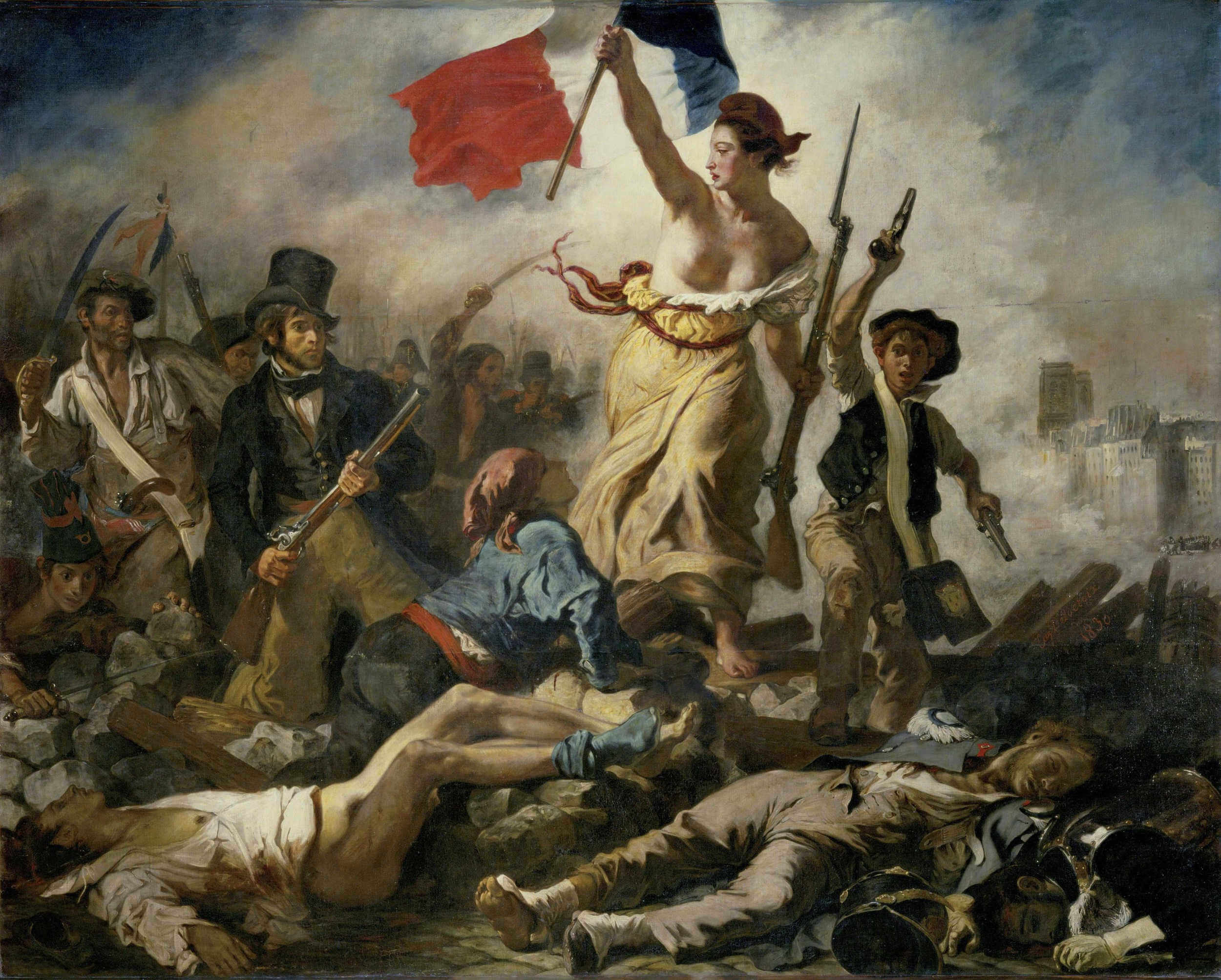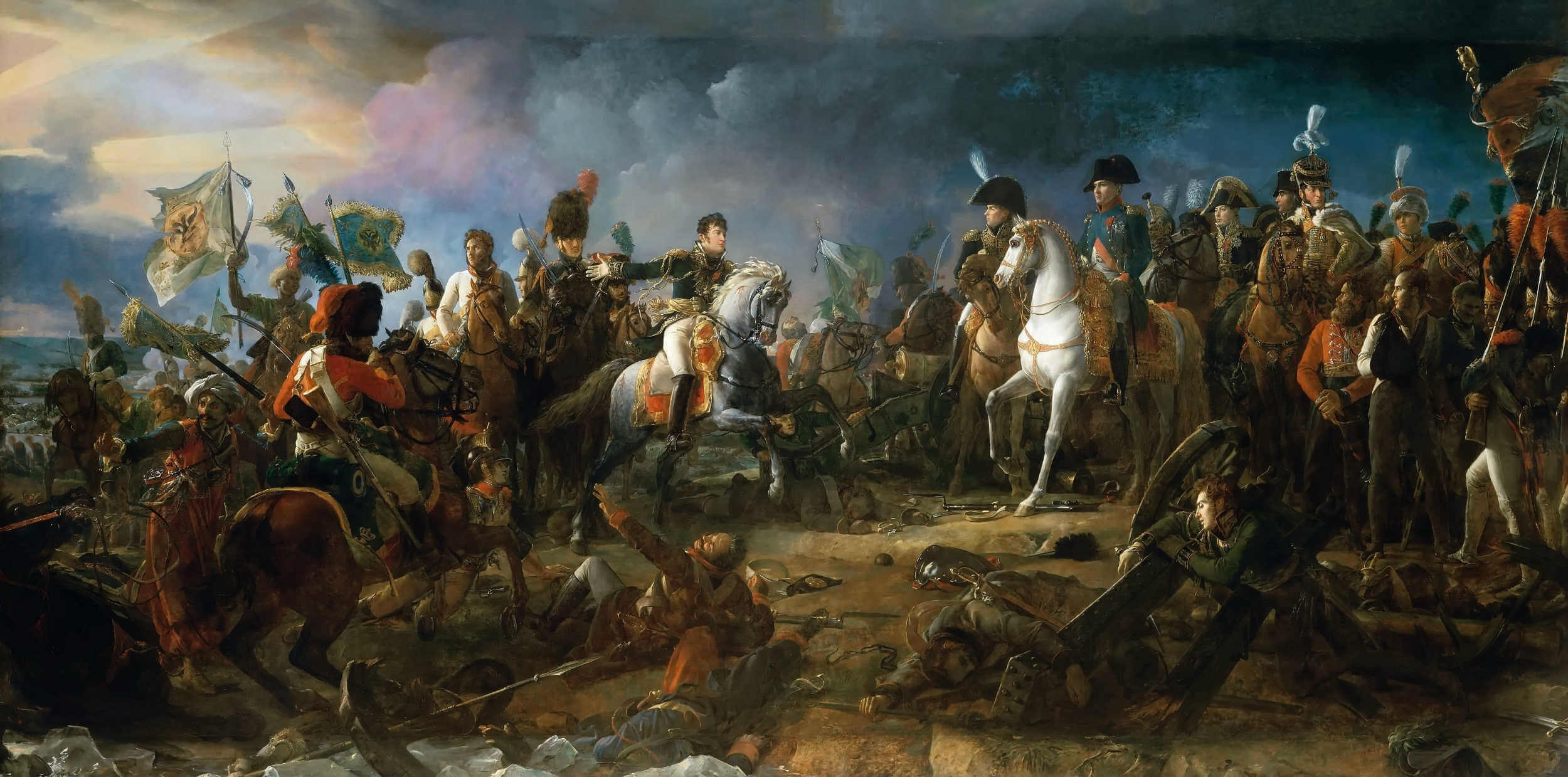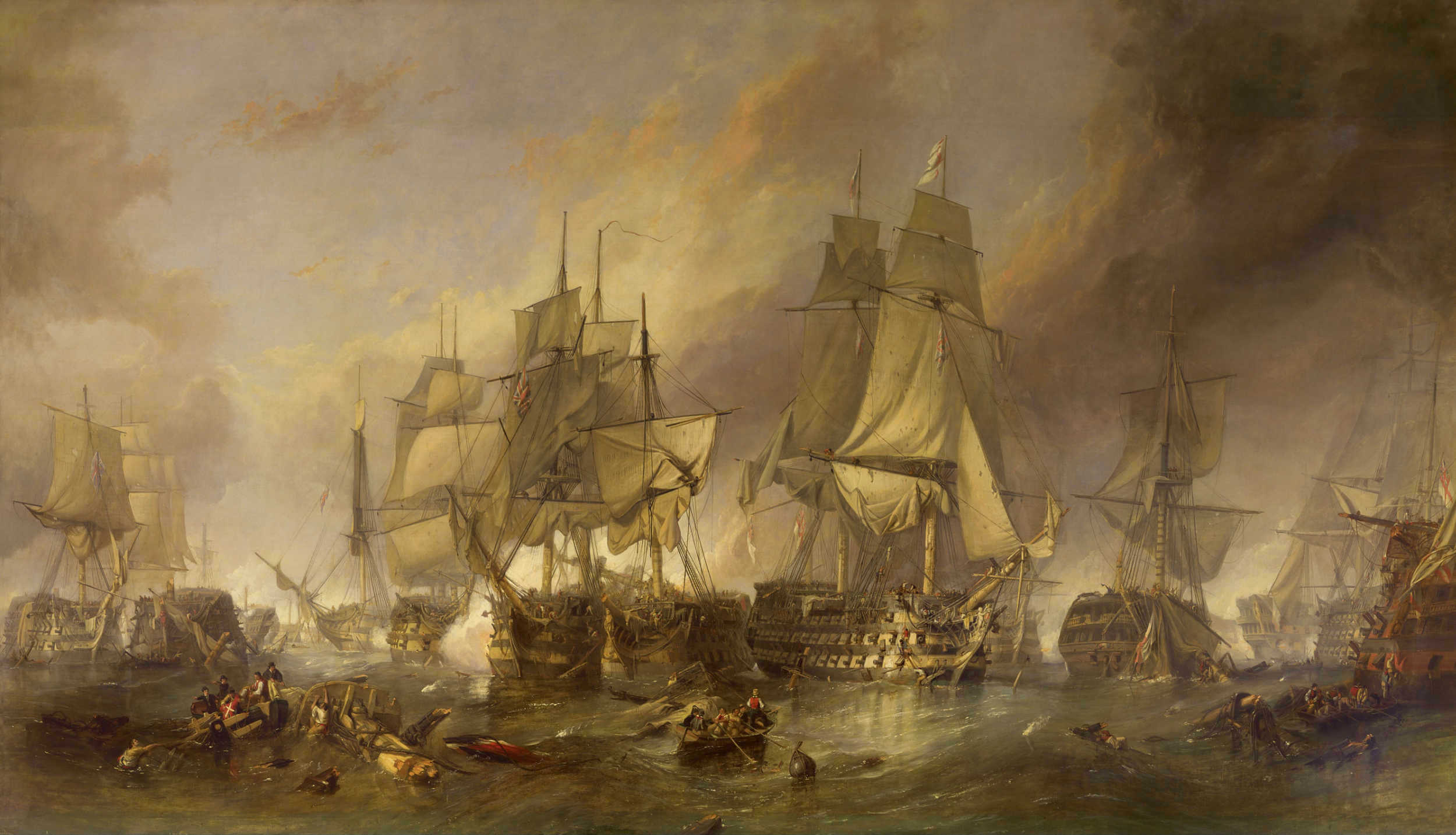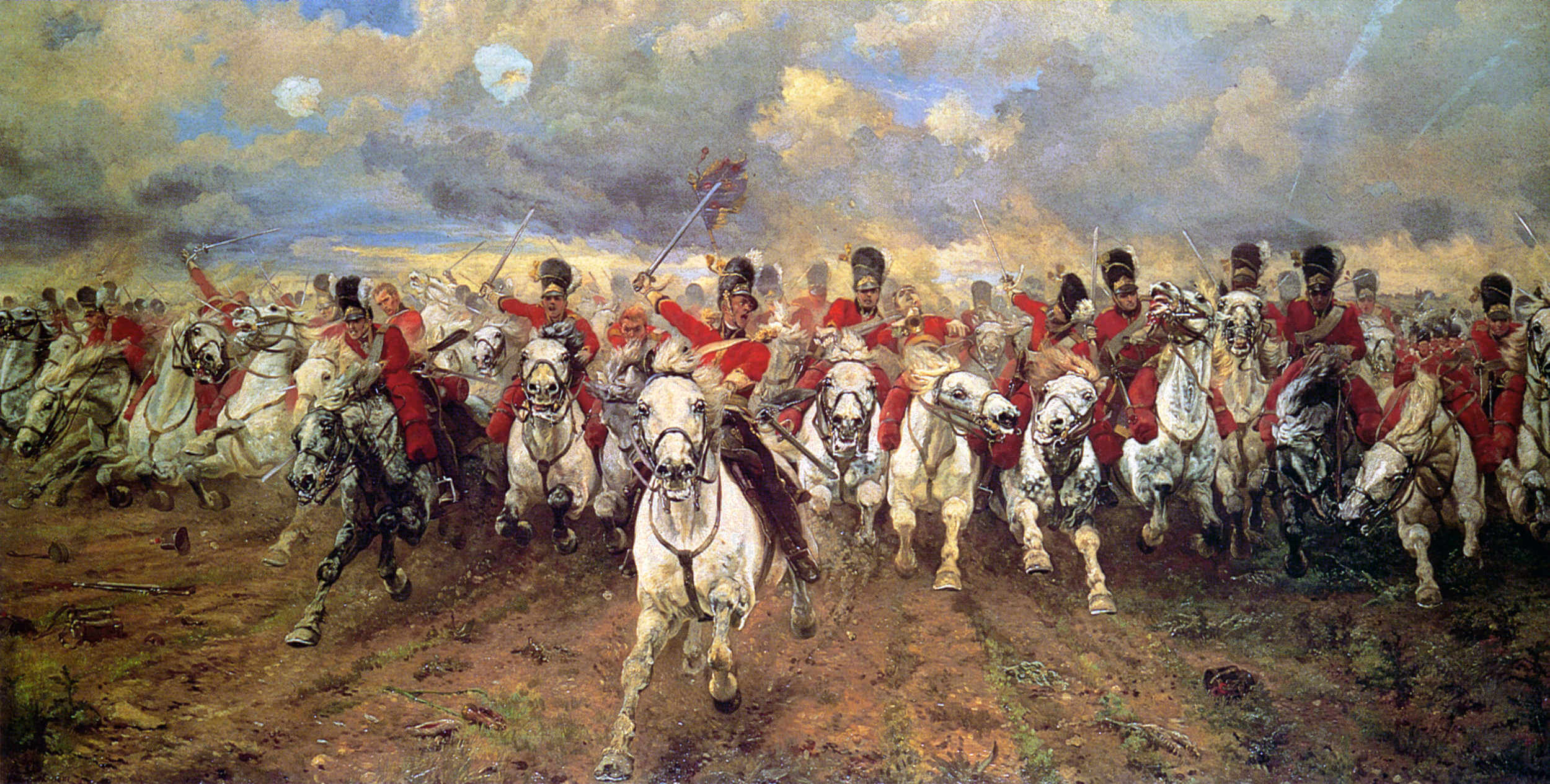It's just one damn thing after another…
What is history for?
History is a set of lies agreed upon.
Napoleon Bonaparte
The problem with history, of course, is that there's just so much of it – sometimes it seems as though there's more every day. All those dates and battles, the kings and queens, the movements and revolutions, what does it amount to but mental clutter, a hoarding of facts and events destined only to gather dust for the want of any real purpose?
That's not the only problem with history. Even when we have all these facts, it's hard to know what to do with them, to move beyond the what happened, into the murkier waters of the why. Things don't just happen after all: what had to come together to make Columbus’ voyages possible? How many stars had to align before he cast off? And why, you might well ask, did he bother?
But neither of these are the biggest problem with history. More pervasive and more damaging still is the idea that there is a Truth that we can know, a finish line of complete and certain historical knowledge that we can aspire to and achieve. No, wait, there's something still worse (not that we're making this up as we go along): that there is a Truth and we do know it. The hardest thing to do in history may not be learning something, but unlearning it. Realising that the assumptions, beliefs or certainties with which you've grown up are not the whole story. That there are other stories, beliefs, perspectives. This is not to say that there is no such thing as truth, it is the opposite. That there is often more than one. And that ours may not be uniquely privileged.
History is the story of our communities, our societies and our civilisations. It's the story of how the world, your country, and you came to be. It's the story of why you think the way you think, especially about the things you haven't really thought about.
Most of all, it's the story of people, of their decisions, their fears and their ambitions. Behind all the chronicles, reports, memoranda and memoirs were people, people who didn't know what was going to happen next, or often what had happened before, or why what was happening to them now was happening. At its most effective, history reveals these people to us, not as victims or oppressors, nor as heroes to emulate or villains to despise, but as individuals much like us. It invites us to try to understand them, and what we might have done in their position, and to question the comfortable assumption that we would have been on the 'right' side of every historical conflict or controversy. Harder still, it asks us to think again about where we are now, who we are now.
To forget … and get one’s history wrong, are essential factors in the making of a nation; and thus the advance of historical studies is often a danger to nationality.
Ernest Renan
During the Napoleonic Wars (1803-15), which Britain fought against an Imperial France that had conquered much of mainland Europe, a French ship foundered off the coast of Hartlepool in north-eastern England. The sole survivor was the vessel's mascot, a monkey, which found itself washed ashore on the beaches of the town. This fortunate reprieve was all too brief, for the creature was dressed in a French military uniform which, along with its bestial hairy appearance, and its unintelligible chatterings, was enough to convince the townsfolk that it was a French spy, whereupon they hastily and enthusiastically hanged it. To this day the people of Hartlepool are affectionately (or otherwise) referred to as 'monkey-hangers'. Their football team mascot is a man in a monkey costume known as H'Angus, and in his day job he has been elected town mayor not once but three times.
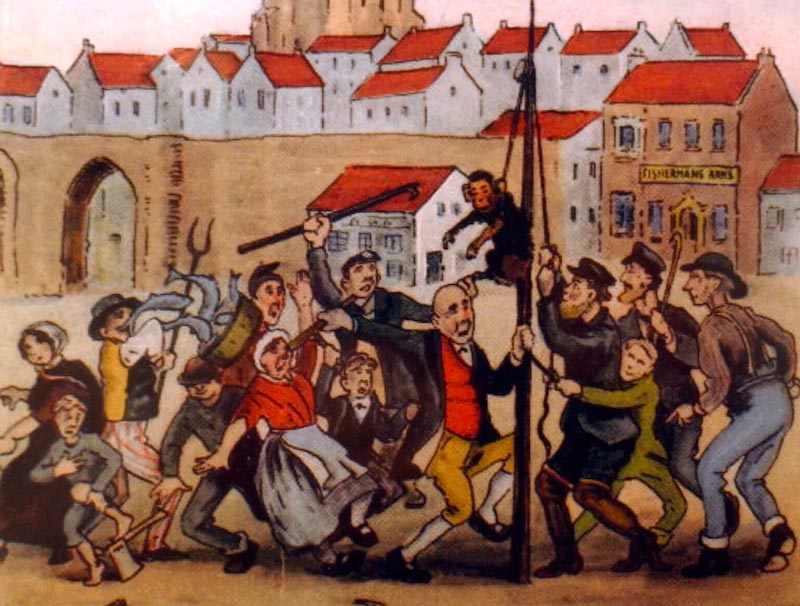
This is a nice historical anecdote, a memorable incident combining international intrigue, comedic misadventure, and a generous dash of animal cruelty for seasoning. Does it matter that it almost certainly never happened? The same story is claimed elsewhere, and its first recorded reference to Hartlepool dates from 1855 in a song delivered by travelling singer lampooning the town. Nevertheless Hartlepool has embraced the myth. It is too bizarre a story to make up so there must be some element of truth in it.
said the afore-mentioned thrice-mayor, Stuart Drummond. There are always going to be naysayers and people trying to prove it's wrong but there is not anyone alive now who was there who could confirm or deny it.
As defences go, that's leaky. A more common argument is, it's all in a bit of fun, so why spoil it? Stories are fun. They can make us feel like the world is a better, or more interesting place, and they can make us feel like better people, like a better people. And people often tell us these stories for precisely that reason, but when they present these stories as truth, as something that happened, then we have to call these stories what they are: lies.
What's the harm? Why shouldn't Hartlepudlians feel proud of their past as cheeky but lovable Francophobic monkey-murderers? If it only informs our opinion of nineteenth-century Hartlepudlians, then maybe nothing too important. But doesn't it also say something about our impression of Frenchmen? And maybe polishing off and proudly displaying a small nugget of English xenophobia feels a little bit less harmless when the seam it came from is still being profitably mined to this day.
On 23 April 2021 former US Senator Rick Santorum delivered a speech to the Young America's Foundation Standing up for Faith and Freedom Conference in which he declared We came here and created a blank slate. We birthed a nation from nothing. I mean, there was nothing here. I mean, yes, we have Native Americans, but candidly, there isn’t much Native American culture in American culture. It was born of the people who came here pursuing religious liberty to practise their faith, to live as they ought to live, and have the freedom to do so. Religious liberty. Those are the two bulwarks of America. Faith and freedom. I mean, you hear it all the time about faith and freedom, faith and freedom. But it is what makes America unique in the world.
This is a similar vein, but larger, weaponized. A portrait of a past, of an America made by and for people who came here pursuing liberty. Liberty to what? To believe what they want to believe,
Santorum said, with the qualification that America's founding documents were based on Judeo-Christianity, upon the Ten Commandments, and the teachings of Jesus Christ. It's in our DNA.
America belonged to them, to their religion and their conception of liberty. Not to those who were there before, and perhaps more crucially not to those who had come after and wanted to come still, to different faiths and differing ideas of what America might become.
Men who have lost their grip upon the relevant facts of their environment are the inevitable victims of agitation and propaganda. The quack, the charlatan, the jingo . . . can flourish only where the audience is deprived of independent access to information.
Walter Lippmann
The important issue is not the density of historical error in Santorum's remarks – it is unlikely either he or his audience cared much about that. And contrary to American journalist Walter Lippmann's observation from 1920's Liberty and the News, this audience had more independent access to information than any generation ever. They had more information than they could ever hope to absorb, and were using it avail themselves of that right Santorum had promised, to believe what they want to believe
. Why would they want to believe in this so-called blank slate? Maybe as Simon Moya-Smith suggests, Erasing indigenous peoples from America's history is a way of erasing white American brutality and savagery so they can absolve themselves of complicity
. Maybe it's easier to believe America really was reserved for God's chosen people if we can assure ourselves that it was previously untenanted. This is history à la carte, the choice cuts only, for particular tastes and refined palettes.
We don't want to do that. It's been done. We don't want to mount a defence of any one culture or perspective or truth, nor for that matter a prosecution. We're not here to assuage guilt or allay fears of privilege, or to stoke indignation. We are all who we are, with no say in how we got here or what happened before we were born. But we can understand the world we are in, and our place in it, a little bit better, the forces that shaped our societies and our lives, and that continue to act upon us in ways both seen and unseen. They are like tides, currents roiling beneath the surface, and for some of us that tide is with us and for some it is against. We can all of us swim against these tides, but we must acknowledge that the effort required is not the same, and that those of us who are pulled under are not by definition weaker or worse than those who are not, but perhaps just born through no fault of their own under a bad sign.
That's the plan. Inevitably we'll be sidetracked. There will be scenic routes, wild diversions, excursions into the might-have-been, thoughts on the never-was. We're going to get lost, sometimes without realising it. We shall not cease from exploration,
as T. S. Eliot wrote, and the end of all our exploring, will be to arrive where we started, and know the place for the first time.
We know, though, that we’ll never be done.
Welcome to Unfinished History.
Lionization and demonization are best left to the heroes and villains of fairy tales. History is not indoctrination. It is a wrestling match. For too long, the emphasis has been on pinning the opponent. It is time to shift the focus to the struggle itself. Conflict does not necessarily demand a resolution. Disagreements among highly educated, well-informed people will continue. Why should history ignore this reality? There is no better way to use the past to inform the present than by accepting the impossibility of a definitive history.
Michael Conway
Bibliography
- Conway, M. The Problem With History Classes.The Atlantic, 16 March 2015.
- Leatherdale, D. Was a monkey really hanged in Hartlepool? BBC News, 17 September 2017.
- Lippmann, W. (1920) Liberty and the News. New York, Harcourt, Brace & Howe.
Practical stuff
Unfinished History is written by Dan and Dug, or as some would have it, Dug and Dan. We're keeping it informal, because if we used our surnames, Dug would, according to the arbitrary dictats of the alphabet, come first.
A while ago, or, strictly speaking, a surprisingly long time ago, we were both paid a derisory amount of money to write a history of England. That never happened again, but we both enjoyed it, and so we're writing some more, and after many a bright idea turned out not be, we hit upon this website.
So far as qualifications go, we both have History degrees, but more importantly we can both think and we can both read, and we've been doing a lot of both. To paraphrase Matt Damon in Good Will Hunting, why waste $150,000 on an education you coulda got for $1.50 in late fees at the public library? Not that we think anyone should have to pay $150,000 for an education, nor assume that everyone has access to a public library (if you do though, return your books on time).
As we both have day jobs, and families, progress is slow. Fitful. While we would love to do this full time, you can be reassured that this is highly unlikely.
If you would like to contact us, perhaps to point out egregious errors, you can do so at unfinishedhistory@gmail.com
A note for copyright owners
We strongly believe that a picture is worth a thousand words, meaning we have a thousand left to write and, crucially, anyone out there has a thousand less to read. We've done our best to ensure that all images used on this site are in the public domain, and that credit is given where appropriate. In any other instance we've tried to find details of ownership, but if we've messed up and one of your images has been used without permission, please get in touch. If we can pay any required licensing fees we will do so, though we do not profit from this site, which is free to view and does not carry advertising. So we can't afford to pay much, but if we can't afford to pay for an image we'll remove it at the owner's request.

